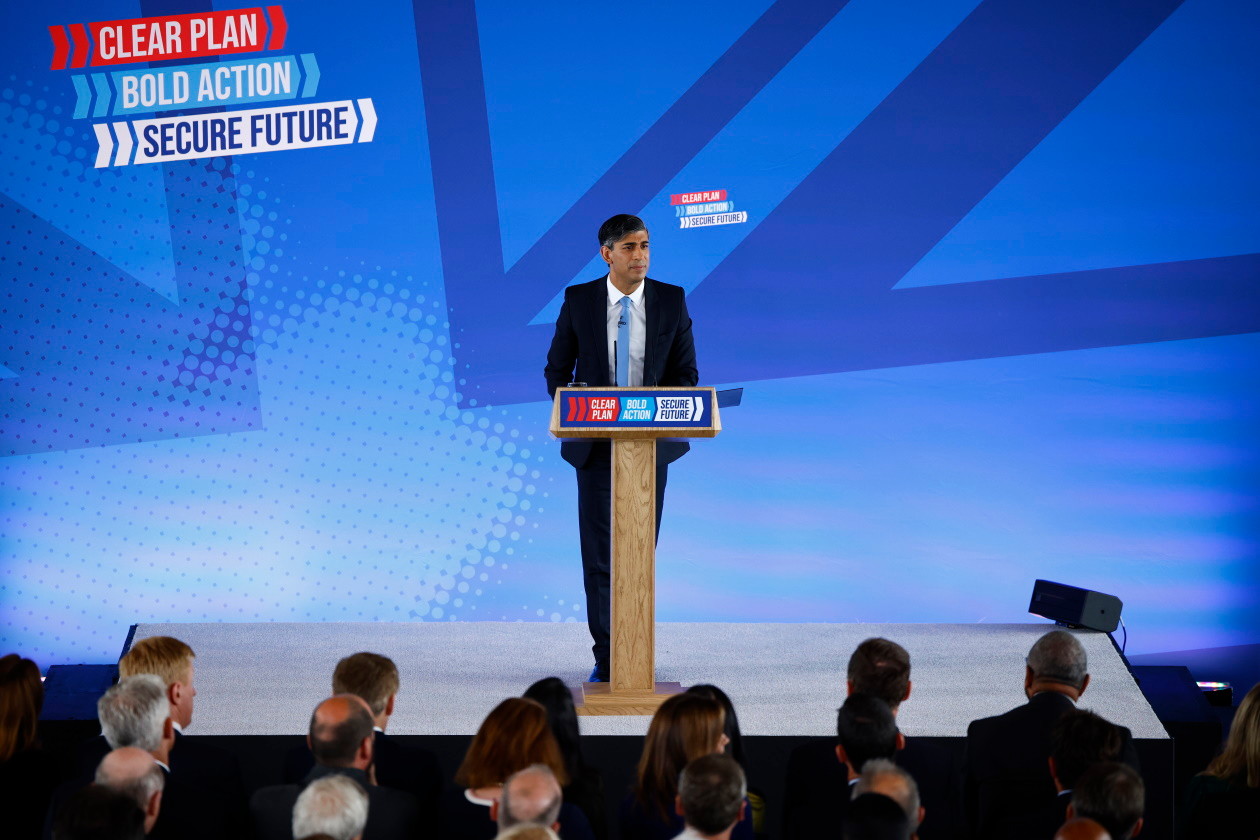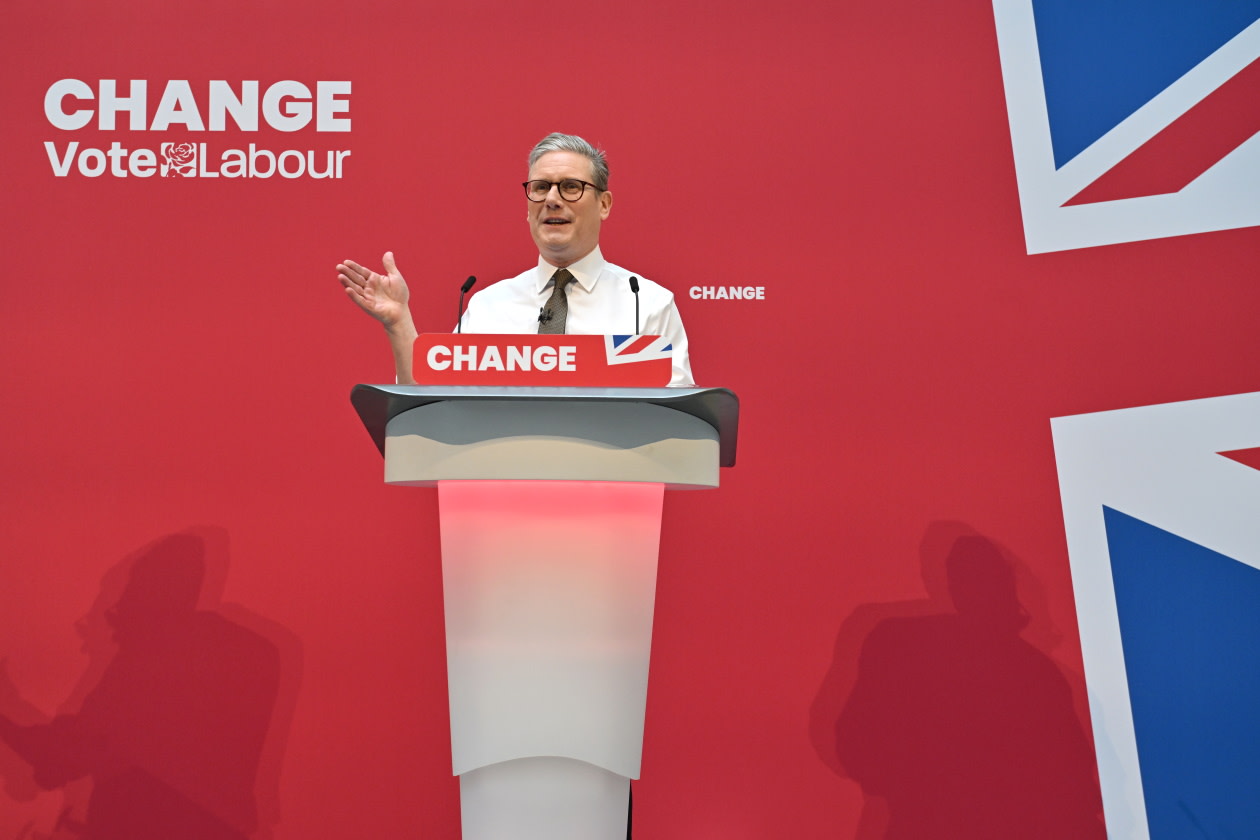Today, the Labour party released their manifesto for the 2024 General Election.
Here are the main takeaways and what it could mean for your money.
This article isn’t personal advice. Pension, ISA, and tax rules can change, and benefits depend on your circumstances. All investments can rise and fall in value so you could get back less than you invest. If you’re not sure what’s right for you, seek advice.
Sign up to our Editor’s Choice email and we’ll send you our top stories from the week, every Saturday morning – including all our latest insights on the 2024 General Election and what it means for your money.
Labour stuck to key pledges for the economy
Labour is determined to keep a tight ship, and the manifesto makes it clear that ministers intend to steer the economy in a ‘steady as she goes’ fashion. This is while keeping a keen eye trained on stimulating long-term growth, rather than immediate boosts to consumer spending power.
That’s why there are no surprise announcements, with the party being super-careful about pledging changes to spending or fiscal rules that could rattle financial markets.
Keir Starmer has vowed to abide by tough spending rules to be seen as responsible with the country’s financial health, by making sure debt falls as a share of GDP, or economic output, in five years’ time. However, Labour’s determination to be seen as economically credible could limit its ability to make immediate inroads into key pledges like saving the NHS.
Vowing to keep corporation tax at 25% through the next parliament will offer some reassurance of stability for corporate Britain. Smaller businesses, particularly those on the high street, will welcome the latest pledge to scrap and replace the current business rates system.
Given the current sluggish economy and painful payments on government debt, it’s clear the economy needs a long-term plan for investment. However, finding money to pay for better infrastructure, new energy systems and support high growth sectors, through the ‘National Wealth Fund’, as well as bettering public services, might be wishful thinking.
It could well mean the fiscal rules will have to be tinkered with in the future, and further tax rises can’t be ruled out.
Ending the sunset clause for the energy payments levy, and increasing the duty by 3%, wasn’t a surprise, given earlier pledges, and there will be some relief it’s not being backdated. But the confirmation appears to have prompted further falls in the share prices of North Sea oil operator, Harbour Energy, given how the levy has already significantly curbed its profits.
However, giants BP and Shell were little moved, given they’re more able to absorb such an increase.
With Brent Crude falling back on fresh demand concerns, there are questions over how just much will be raised through the levy.
Pensioners should have some certainty
There were no real surprises for pensions in today’s manifesto, with much of it released in advance.
Labour’s pledged to maintain the triple lock on the State Pension weeks ago. It was very clear it wouldn’t go down the road of turbo charging it as the Conservatives have done with its ‘triple lock plus’.
The decision not to try and trump the Conservatives on this will go down well with those who criticised the ‘triple lock plus’ for favouring pensioners at the expense of working-age people.

Labour also reiterated plans to encourage pension schemes to invest more in the UK stock market. They will also launch a review into the retirement savings landscape to make sure it’s working as well as it should.
Many are hoping the State Pension will be included in this review to make sure it remains sustainable in the long term and that the State Pension age doesn’t need to be hiked.
The lifetime allowance didn’t get a mention within the document itself. But there was a collective sigh of relief earlier this week, with the news that Labour wouldn’t reintroduce it.
The decision not to bring it back means people can now plan for their future with much more certainty.
A notable absence from the manifesto is any detail regarding pension tax allowances. The Conservative manifesto says there would be no changes allowing people to plan ahead and make full use of the allowances available to them.
So far, Labour has made no such promise, raising the prospect of things like the annual allowance or pension tax relief to be pruned back.
Some taxes paid by working people won’t rise – although they’ll still pay more tax
Labour pledged there will be no tax rises for working people. They have specifically ruled out rises to income tax, National Insurance and VAT.
However, both Labour and the Conservatives have said they won’t tackle the misery of frozen tax thresholds. It means whoever is elected, you’re set to pay more tax.
Pay rises will continue to push more people into paying more tax. It’s already meant 2.1 million more paying income tax and by April 2029, this is set to rise to an incredible 3.7 million.
Meanwhile, the number of extra people forced to pay higher rate tax by the policy has hit 1.4 million and will reach 2.7 million by April 2029.
Moving tax brackets doesn’t just mean more tax on your income. It also slashes your tax-free savings allowance and pushes you into paying higher rates on everything from capital gains tax (CGT) to dividend tax.
On top of this, there are other tax freezes and temporary cuts due to come to an end that Labour hasn’t pledged to extend, including the 5p cut in fuel duty and the stamp duty holiday set to end next March.
It means that even while there’s all this talk no tax rises, there’s every chance you could end up handing over more in tax in the future.
That’s why it’s so important to make sure your finances are as tax-efficient as possible through things like ISAs and pensions, like the Self-Invested Personal Pension (SIPP).
Other taxes will rise for specific groups of people
Other taxes will rise. There have been specific pledges to:
Raise tax for non-doms
End the use of offshore trusts to avoid inheritance tax
Change the capital gains tax (CGT) treatment of private equity pay
Raise stamp duty for non-UK residents buying residential property by 1%
And introduce VAT on private school fees
For anyone who sends their child to private school, this will be another challenge on top of runaway fee rises in recent years.
However, anyone tempted to consider one of the schemes that are claiming to get around VAT should think twice. Rules are highly likely to include measures designed to catch these schemes out. So you could end up wasting money, or stretching yourself to pay early, and facing the tax charge anyway.
Starmer made it clear that nothing in the manifesto will need additional tax rises, but Labour hasn’t ruled out changes to capital gains tax.
At this stage, it’s difficult to know exactly what these changes might be, or whether they would be needed. However, for investors with holdings outside tax wrappers, there could be an extra cost.
Labour said they are advocating for wealth creation. But it will have to tread carefully on CGT if it wants to make sure the right incentives are in place to create this wealth.
If you haven’t used your ISA allowance for this tax year, this is a key opportunity to shelter any new investments or savings.
Alternatively, it could be a chance to move existing investments into a tax wrapper, like a Stock and Shares ISA, through share exchange (also known as ‘bed and ISA’).
In any case, it makes sense to take action sooner rather than later, so your money is sheltered from tax regardless of who’s elected.
There could be more support with social care
The manifesto makes no direct promises of a cap on care costs. Instead, it focuses on building a ‘National Care Service’ with a fair pay agreement and building consensus for the long-term reform that’s needed to make social care more sustainable.
However, they did add they want to explore how best to help people as they get older. Anyone fearing the horror of catastrophic care costs will hope this includes addressing managing the cost of care.
There could be more help for parents
There was no update on existing plans to roll out free childcare to children aged nine months and over by September 2025. But given this is already on the books, it’s highly unlikely this will be touched.
Labour has pledged to extend care by providing free breakfast clubs in every primary school. And for parents wrestling with the ridiculous cost of school uniforms, there will be a limit on the number of branded items schools can demand.
Get our latest insights on what the General Election could mean for you and your money.
More properties could mean cheaper houses
Labour says it would help people get onto the property ladder by building more houses.
They have pledged to build 1.5 million homes during the next parliament, bring back housing targets, and reform the planning system.
They want to strengthen rules requiring more affordable homes to be built and make sure first-time buyers can buy properties on new developments before they’re sold overseas.
They would also bring in a permanent mortgage guarantee scheme for those with smaller deposits.
Elsewhere on housing, they also pledged to end leasehold properties – which it dubs ‘fleecehold’ – and tackle ground rents. It would end no fault evictions for renters and allow renters to challenge unreasonable rent increases and raise standards.
You don’t have to wait for the government to get closer to owning your first home.
The Lifetime ISA (LISA) can make a significant difference to first-time buyers. If you’re under 40, you can open a LISA and get a 25% bonus added by the government on top of anything you pay in each tax year (up to £4,000). This means you could receive a £1,000 bonus each year.
We would like to see the penalty for early withdrawal for any reason other than buying a first property be cut to 20%. That way it effectively just removes the government bonus, without taking a chunk of people’s savings too.
Get our latest insights on what the General Election could mean for you and your money.
Article image credit: Anthony Devlin / Stringer.






